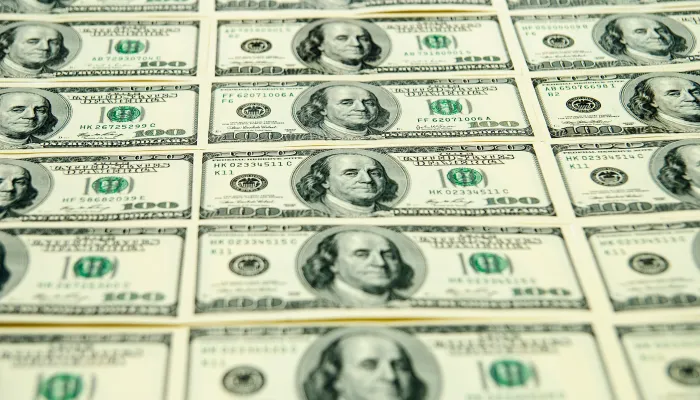The Kamala Harris Plan for Taxing Capital Income
As part of her New Way Forward for Small Businesses, Vice President Kamala Harris announced her support for several policies that would increase taxes on capital income. We estimate these policies would raise $750 billion to $900 billion of revenue over a decade.
Vice President Harris specifically noted her support for increasing the stock buyback tax from 1 to 4 percent, increasing the ordinary capital gains tax rate from 20 to 28 percent for households making over $1 million per year, and establishing a new billionaire minimum tax, among other changes. We assume the billionaire tax would match a proposal from President Biden’s Fiscal Year (FY) 2025 budget – including with a 25 percent rate for households with more than $100 million of wealth.
We have not yet estimated the cost of Harris’s small business plan or her plan for “rolling back Trump’s tax cuts for the wealthy,” and we estimated her plan to raise the corporate tax rate to 28 percent in a previous analysis.
US Budget Watch 2024 is a project of the nonpartisan Committee for a Responsible Federal Budget designed to educate the public on the fiscal impact of presidential candidates’ proposals and platforms. Throughout the election, we will issue policy explainers, fact checks, budget scores, and other analyses. We do not support or oppose any candidate for public office.
Under current law, qualified dividends and long-term capital gains are generally taxed at a preferential rate, which can be as high as 20 percent, with the tax imposed at the time of sale (‘realization’) and the capital gains basis ‘stepped up’ at death. Capital gains are also subject to a 3.8 percent Net Investment Income Tax (NIIT), which starts for individuals making over $200,000 and married couples making over $250,000. While stock repurchases, unlike dividends, have not been taxed historically, policymakers also implemented a 1 percent excise tax on corporate stock buybacks in 2022.
In a recent white paper outlining Vice President Harris’s plan to support small businesses, the Harris campaign stated that “she supports a billionaire minimum income tax, increasing the corporate tax to 28%, quadrupling the tax on stock buybacks, and other reforms to ensure that the very wealthy are playing by the same rules as the middle-class” and a “long-term capital gains increase from 20% to 28%” for households making over $1 million. She does not specify whether the 3.8 percent NIIT would be left in place or increased to 5.0 percent as proposed in President Biden’s budget. We previously estimated her plan to raise the corporate tax rate to 28 percent would generate about $1 trillion of revenue over a decade.
Assuming Vice President Harris’s billionaire minimum tax and stock buyback tax plans are similar to the proposals in President Biden’s FY 2025 budget, we estimate that her plan to increase taxes on capital income would raise roughly $750 billion over a decade as written, or $900 billion if they include President Biden’s proposal to tax capital gains at death before allowing for stepped up basis.
| Proposal | Revenue Effect (FY '26 - FY '35) |
|---|---|
| Quadruple the stock buyback tax from 1% to 4% | $150 billion |
| Increase ordinary capital gains and dividends taxes from 20% to 28% on households making over $1 million | $100 billion |
| Enact 25% ‘minimum tax’ on realized and unrealized income for high-wealth households | $500 billion |
| Subtotal, Revenue from Taxing Capital Income | $750 billion |
| Tax capital gains at death ($5m/$10m exemption) | $150 billion |
| Total Revenue from Taxing Capital Income w/ Taxation at Death | $900 billion |
Sources: Committee for a Responsible Federal Budget estimates based on Treasury estimates.
Quadrupling the stock buyback tax from 1 percent to 4 percent would raise roughly $150 billion over a decade. We estimate raising the ordinary capital gains rate from 20 percent to 28 percent for households with annual income over $1 million would raise roughly $100 billion more.
President Biden’s billionaire minimum tax would establish a minimum tax rate of 25 percent for all realized and unrealized income – including increases in the value of stocks and other assets – on households with net wealth greater than $100 million. The taxpayer’s initial tax liability could be paid over ten years, and any future tax liability (or losses) could be spread over five years. Taxes paid under the minimum tax on unrealized gains would effectively serve as “pre-payment” of taxes that would normally be owed when assets were sold. The proposal also includes special rules for illiquid assets and for a variety of other circumstances. The Treasury Department estimates this tax would generate roughly $500 billion of revenue over a decade.
Vice President Harris’s proposal does not indicate whether she would retain stepped-up basis at death, move the carry-over basis, or tax capital gains at death as proposed in the President’s budget. Assuming she follows the President’s proposal, which includes a $5 million exemption for individuals and a $10 million exemption for couples, we estimate it will raise an additional $150 billion. Much of this revenue would come from reducing the incentive for taxpayers to hold assets until death in order to avoid capital gains taxes.
In future analyses, we will estimate the cost of Vice President Harris’s small business plan and the fiscal impact of other revenue changes alluded to in this plan.
*****
Throughout the 2024 presidential election cycle, US Budget Watch 2024 will bring information and accountability to the campaign by analyzing candidates’ proposals, fact-checking their claims, and scoring the fiscal cost of their agendas.
By injecting an impartial, fact-based approach into the national conversation, US Budget Watch 2024 will help voters better understand the nuances of the candidates’ policy proposals and what they would mean for the country’s economic and fiscal future.
You can find more US Budget Watch 2024 content here.


